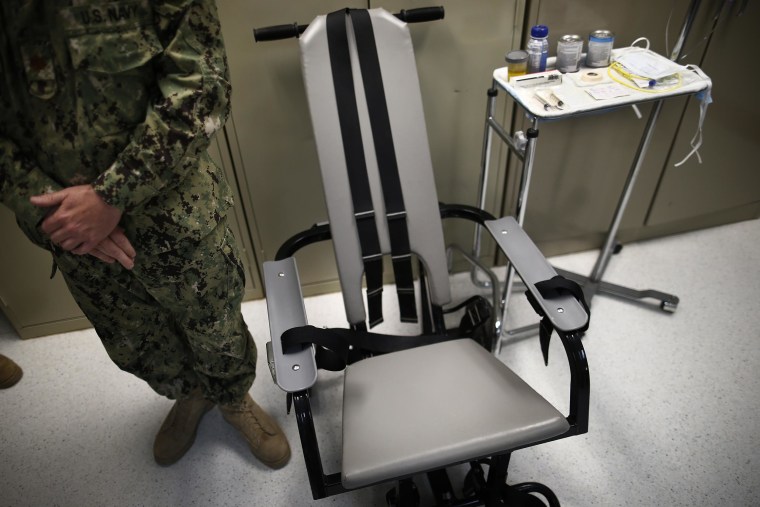Lost in all the talk about the CIA’s history of brutal interrogation tactics after Sept. 11 is this: A real live case involving a U.S. Navy nurse on trial for what he did not do at the notorious Guantanamo prison.
The nurse, in his 18th year in the Navy, volunteered to serve at Guantanamo, where some of those being held prisoner went on hunger strikes. They were following a long tradition going back to the H-Block Irish hunger strikers in Britain who found no other way to protest their internment and prison conditions but to refuse food.
The Navy brass at Gitmo decided that these prisoners were going to eat. They dragged them out of their cells, put them in full body restraints, shoved a tube through their nose and down into their stomachs and force-fed them with artificial food.
The nurse, having done this a few times, decided the force-feedings were too barbaric and refused to do them anymore. The Navy is considering a dishonorable discharge for him.
I have spent the past two days watching the response by politicians, former politicians and the media to The Senate Intelligence Committee’s report into the CIA’s tactics against detainees captured after the September 11, 2001 attacks. The reaction is heated, partisan and full of moral outrage.
No one wants to be seen as complicit with torture or war crimes. One side insists that what needed to be done was done to get information that saved lives. The other insists that what was done amounted to torture, should never have been done and played almost no role in saving lives.
All of this back and forth is important. But at this point it is a battle over history, even if it’s recent history. Meanwhile, no one engaged in the debate has said anything about this nurse. That silence is inexcusable.
It is tempting to lose ourselves in debates over waterboarding, using cold temperatures, psychological intimidation, sleep deprivation and physical immobility to get prisoners to talk. Those are debates that must be had. But there is a direct issue that’s not in the past—should a Navy nurse who sees forced feeding under restraints as cruel, inhumane and a form of torture be thrown out of the Navy or perhaps promoted for his moral courage?

In refusing to engage in force-feeding, the nurse disobeyed a direct order. In refusing to force-feed the nurse took a position also espoused by the World Medical Association and the American Medical Association. A few weeks ago the American Nurses Association issued a powerful statement affirming its support for his decision.
Medical personnel played key roles in the brutal interrogations discussed in the Senate panel report. There will be plenty of discussion about why doctors, nurses or psychologists participated, much less starting private consulting companies to profit from the interrogations as some did. That, too, is important to discuss. We need to face what happened, why, and condemn what was immoral, illegal and worse.
That said, there is a nurse squared off as a matter of conscience against a practice he views as torture. I think he deserves support. I would like to hear what all of those now busy peering through the retroscope and arguing over what they see there think about his situation. In fact, in order to speak credibly about the past they have a duty to tell us what they think about his present.